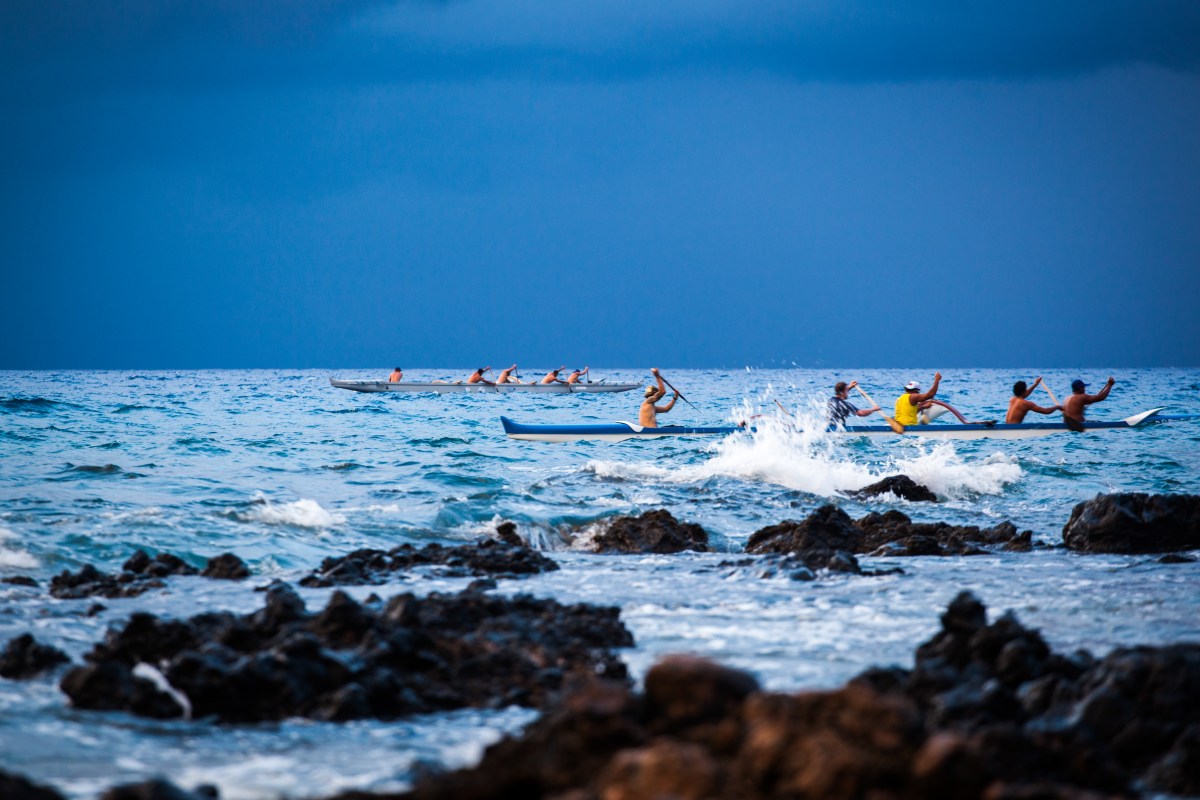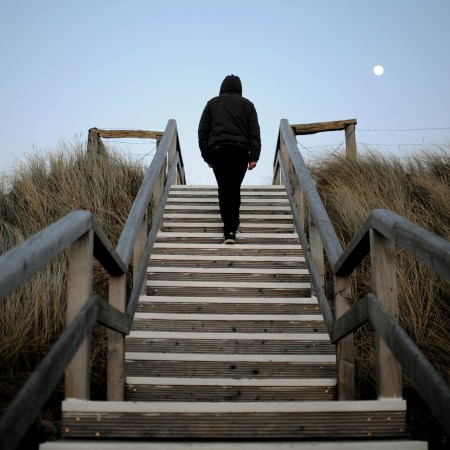If you take a look at a map of the world’s Blue Zones — the areas with the highest concentration of centenarians — every one of them is situated along a coastline. Little wonder: settling down by the sea, in a so-called “blue space,” has been linked to a 17% reduction in mortality rate. One study suggested that living within 250 meters of a seaside environment helps reduce stress levels, with the smell and sounds offering a “wonderful tonic.”
Obviously, we can’t all live a walk from the beach (or on the isle of Icaria, for that matter). But any engagement with water, even a creek, can offer a salve for our embattled brains.
Don’t Forget to Engage in “Green Exercise” This Year
Nature’s a gym. Here’s how to make the most of it.What Is “Blue Mind Theory”?
That’s according to Dr. Wallace J. Nichols, a marine biologist who coined the term “blue mind theory.” (Ted Talk here, book here.) After years spent researching and protecting sea turtles, Nichols started studying the impact that water has on the human body and brain. “When you see water, when you hear water, it triggers a response in your brain that you’re in the right place,” he said in an interview.
If you’ve spent any amount of time near water, you’re familiar with what he’s talking about. Temporary proximity to water — and especially clean water, hence Nichols’ use of the word “blue” — is a form of stress therapy, capable of inducing a meditative state.
How to Put It Into Practice
Research on natural landscapes, blue spaces and beach exercise all highlight the positive transformations that the body experiences near water. Think: “feel-good” hormone release, decreased heart rate, mindfulness. Instead of combing through studies, though, we encourage you to visit bodies of water this summer with intention and savor the sensory details on offer.
For instance: Nichols speaks about the “predictability” of waves crashing on a beach, how that sound (familiar, gentle, a little hypnotic) can induce a relaxed state. There’s a reason it’s easy to do nothing at the beach. Once cortisol drops, we find it easier to lean into our brains — to think without fretting. If it helps, try dismantling the “event nature” of heading to a body of water. Think affordability and accessibility: what’s the closest body of water you can get to on a bike? Can you go alone for a half hour? Can you leave your phone at home?
You don’t have to do a cold plunge. You don’t have to meditate, or skip rocks, or do a workout. Just pop by the water, pay your respects for a bit and head home. Blue Zones are special places. But using blue mind theory, you can create your own in your backyard.
Whether you’re looking to get into shape, or just get out of a funk, The Charge has got you covered. Sign up for our new wellness newsletter today.



















